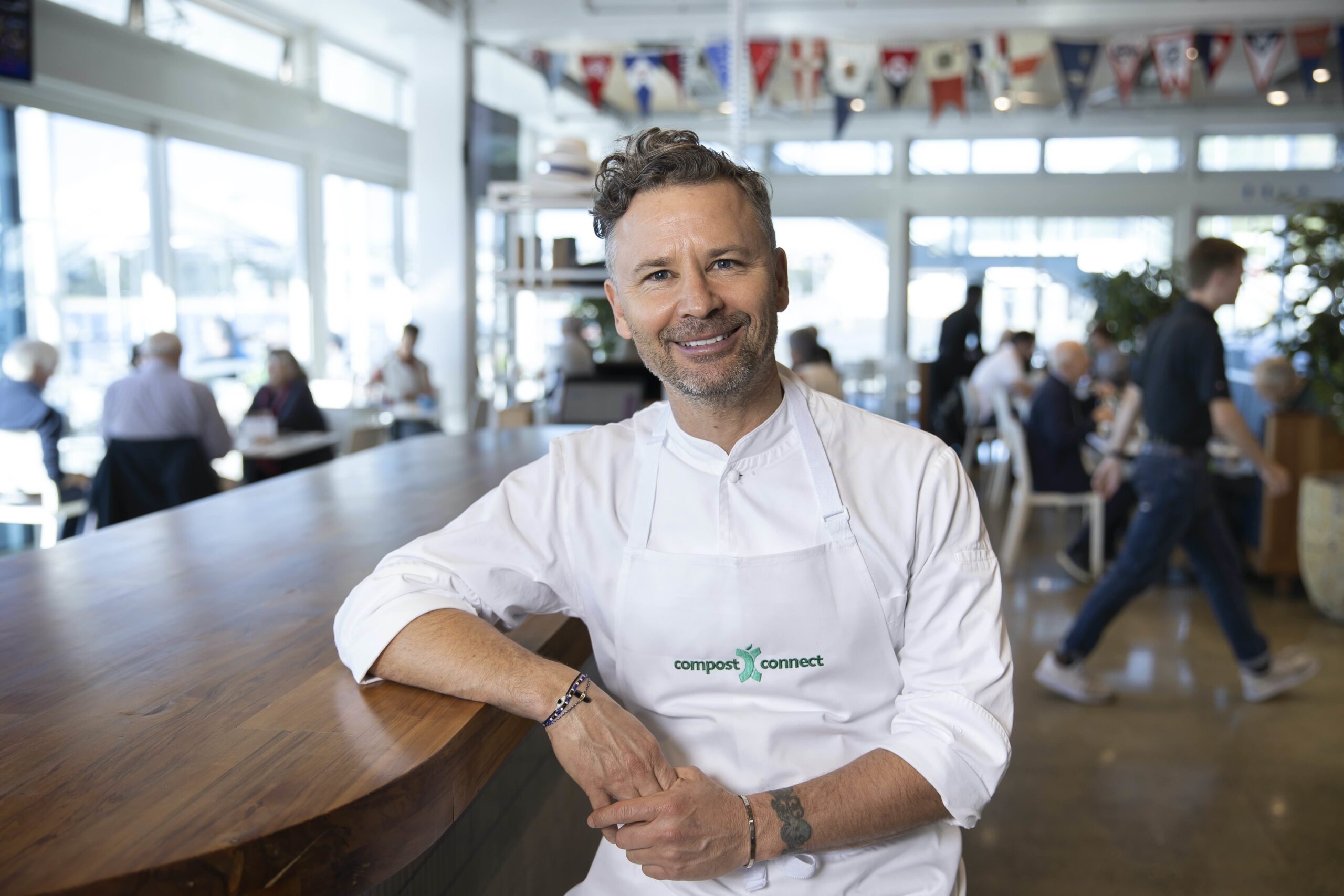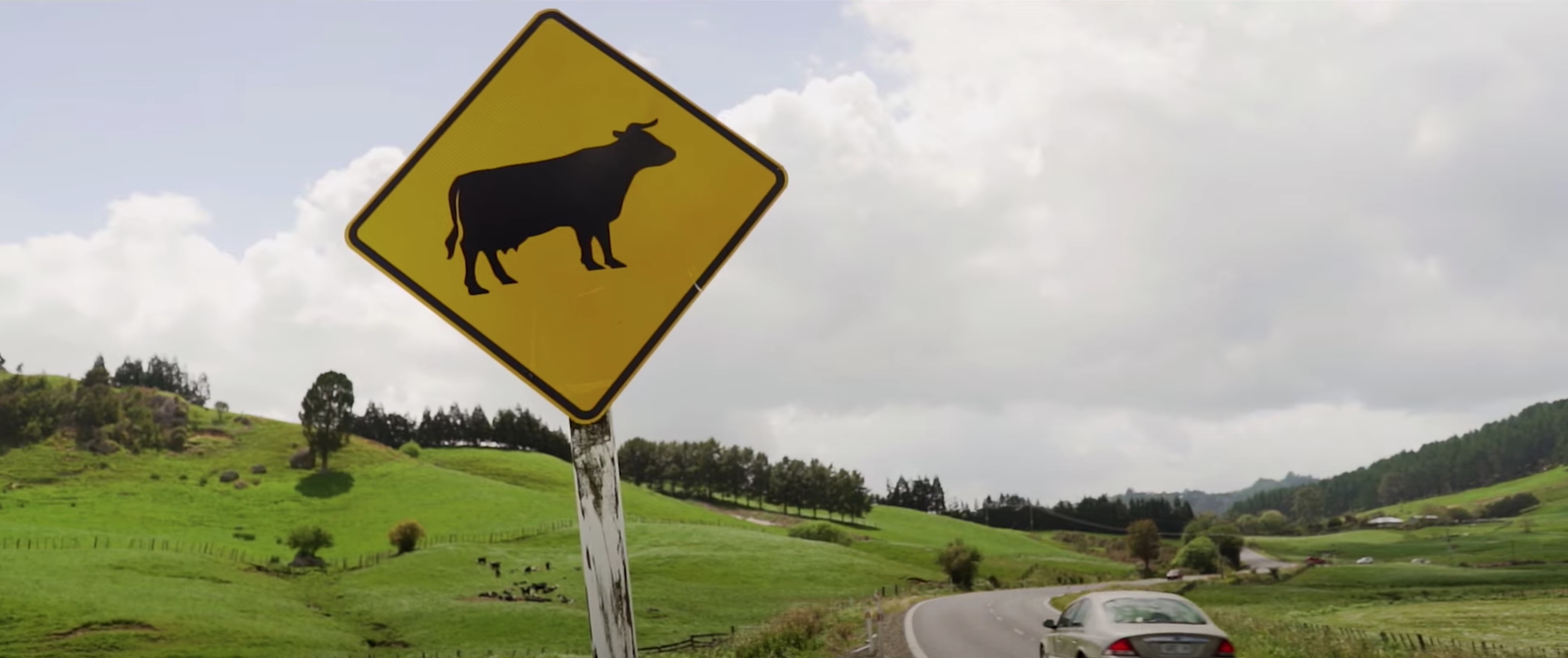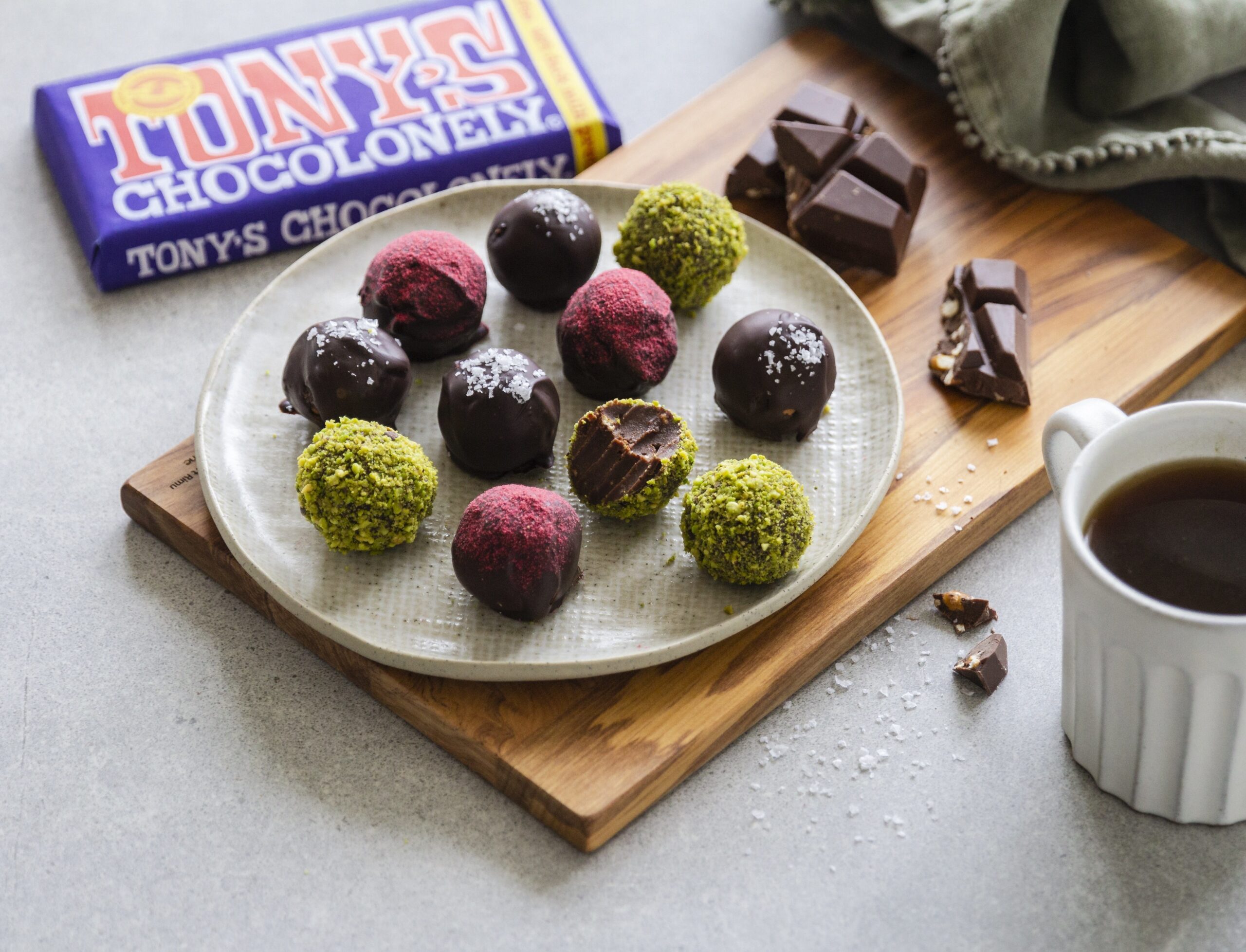Restaurateur Chef Nic Watt, ambassador of Compost Connect. Photography Brett Phibbs
New Zealand has a new composting network, an online platform that connects foodservice businesses with industrial composters.
Backed by restauranteur Nic Watt, the network aims to reduce part of the 157, 389 tonnes of food waste created by New Zealanders every year – this combines with the weight of 271 jumbo jets!
Watt has grave concerns for the future of New Zealand and is imploring others in the hospitality sector to join Compost Connect and divert waste from landfills and dispose of it in a more ethical way.
As a Compost Connect member at his waterside restaurant, Akarana Eatery, Watts explains it is frightening to think about how much waste the foodservice industry creates.
“We owe it to our children, and their children, to do the right thing – and it’s not difficult to dispose of compostable waste responsibly,” says Watt.
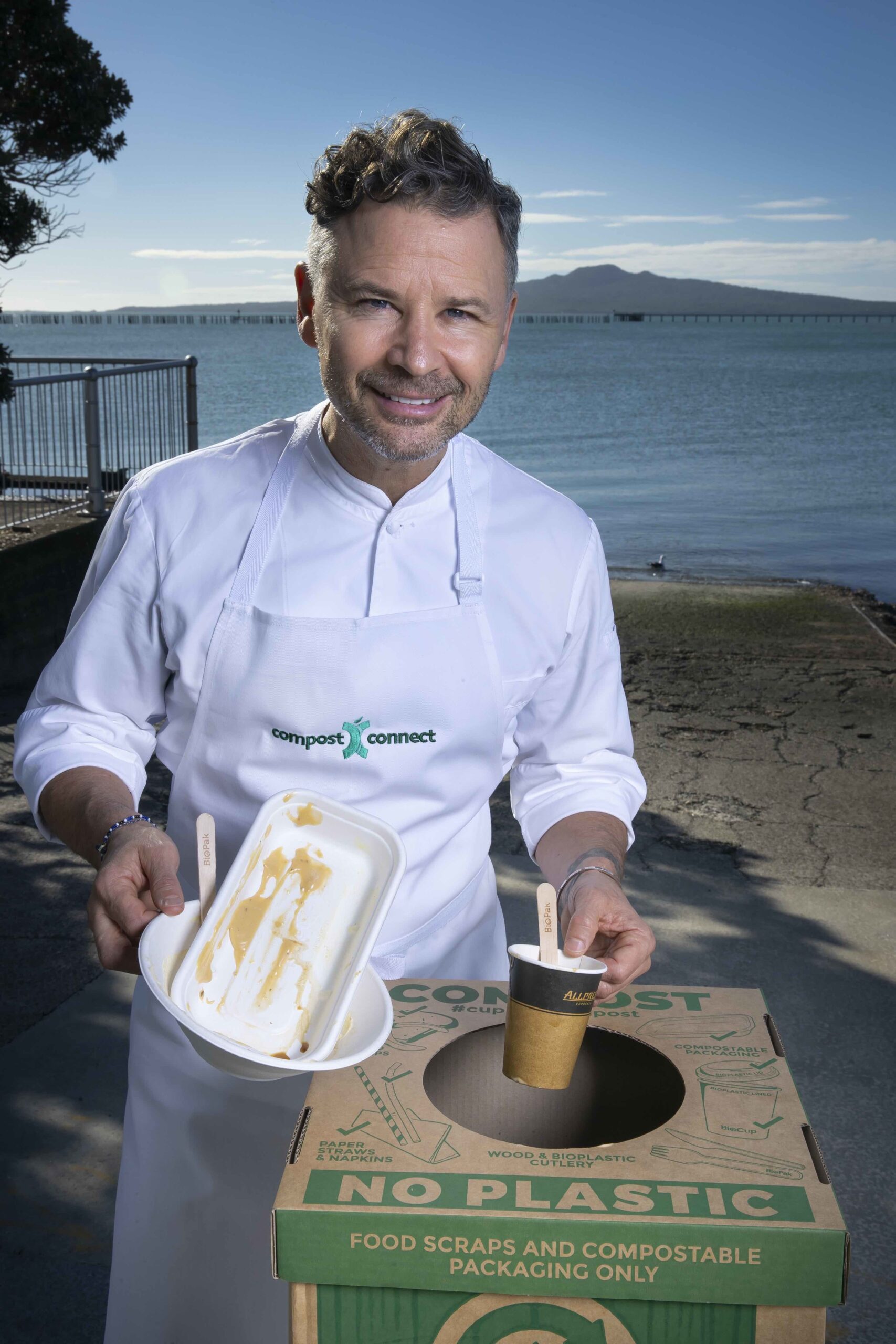
A not-for-profit organisation developed by sustainable packaging manufacturer BioPak, Compost Connect, connects businesses to composters and compostable packaging and provides access to products, services and information that allows them to participate in the circular and regenerative platform.
“Akarana Eatery has a majestic view of Auckland Waitematā Harbour, we showcase quality New Zealand products and so taking responsibility of our waste process helps ensure we are doing our bit to protect this beautiful environment, we definitely take ethical choices and sustainability very seriously,” says Watt.
“It is far better for the planet that we pay to convert organic waste into compost, than pay to fill the country’s landfills. Our industry prides itself on the food we serve, so we need to be proud of how we minimise the impact of waste and hold ourselves accountable for that process.”
Akarana Eatery has one 240L bin of compostable waste collected each week.
In a year that would amount to 4,160kg of waste diverted from the landfill and becoming 2,912kg of compost.
“Compost Collect allows patrons to find restaurants that value ethical choices, and any food service provider can sign up, irrespective of what brand of compostable, single-use packaging they use. This initiative is going to change how the foodservice industry operates for the good of our country,” says Watt.
The website features a map showing Compost Connect members and council composting statuses, and there are plans to add Compost Connect collection Points in the future.
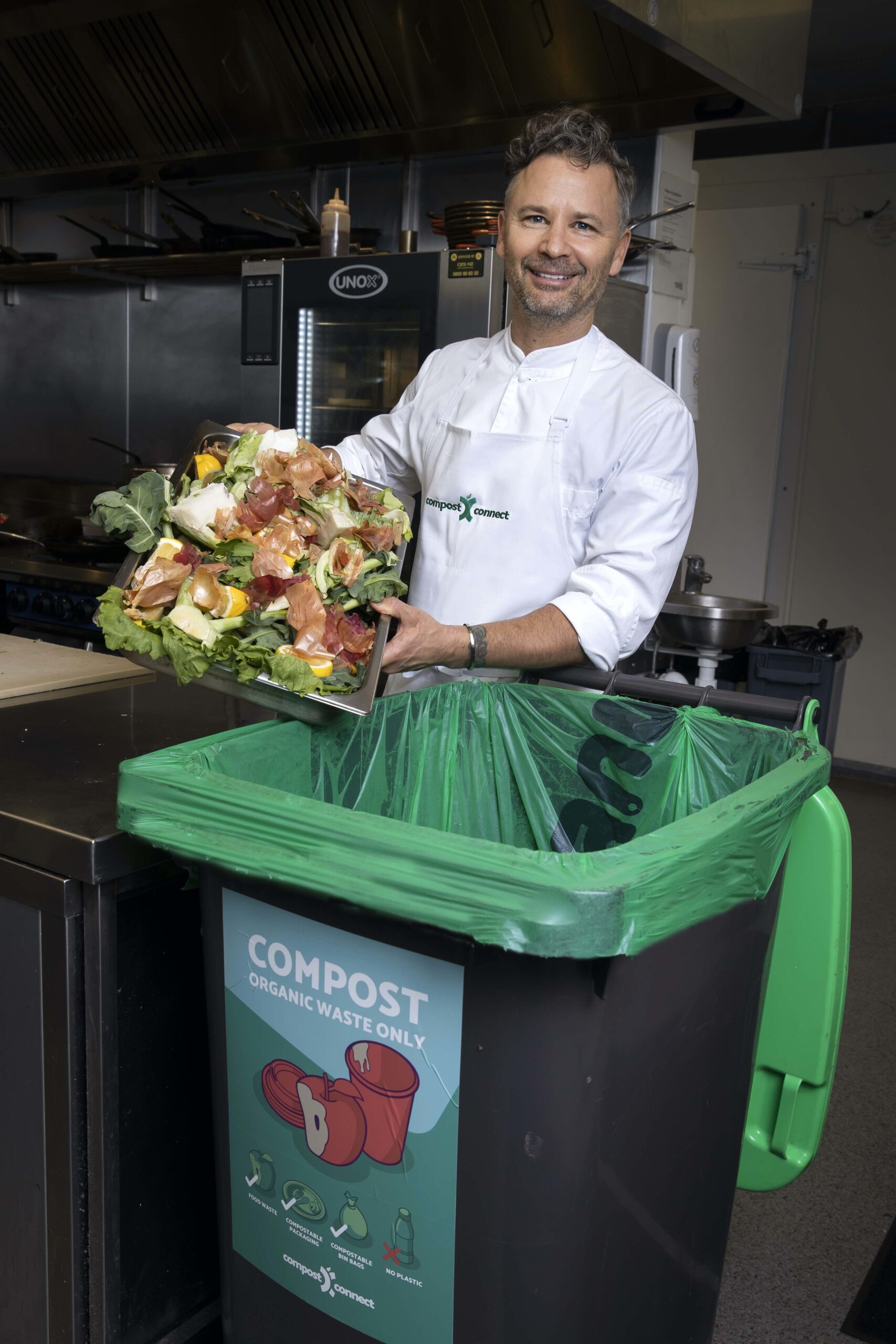
Compost Connect had compost partners operating in Auckland, Whanganui, Nelson and Christchurch, with a national paper cup compost collection.
It has already attracted high-profile and high-volume clients including Kelly Tarlton’s, Revive Cafes, Massey University’s Albany campus, as well as Auckland Girls Grammar and a collection of other schools serviced by DeeJays’ Food in Schools Programme.
Compost Connect board member and BioPak CEO, Gary Smith, says it’s time businesses collaborate and instigate widespread change throughout the foodservice industry.
What goes in the green bin?
You can place any type of food scrap, spoiled or out of date food into your organics as well as certified commercially compostable packaging. This includes:
- BioPak certified compostable products
- Fruit and vegetable peels and scraps
- Meat and seafood scraps and bones
- Egg shells
- Dairy products (cheese, yoghurt etc.)
- Bread, pasta, rice, cereal
- Coffee grounds & chaff, tea bags
- Processed or fresh out of date food


